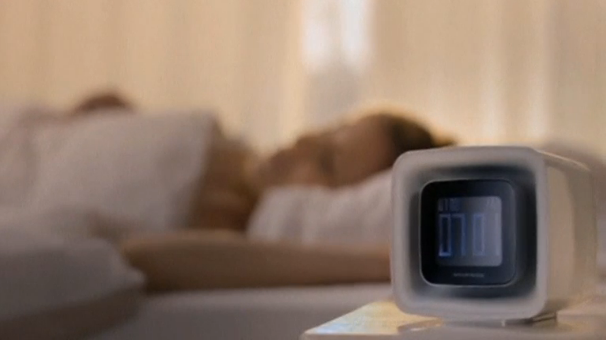

BERLIN, Germany (Reuters) — The smell of coffee is supposed to get you going in the morning. Now a French start-up has taken this idea a stage further with an olfactory alarm clock designed to gradually wake you up by diffusing the smell of espresso instead of blasting your ears with an audio ring.
Sensorwake is the brainchild of 20-year-old Guillaume Rolland and is being launched at this week’s IFA, Europe’s leading trade show for consumer electronics and home appliances.
The device works by users inserting a cartridge, similar to a plug-in air freshener, into the clock. At the time you have set the alarm to wake you up, the scent begins diffusing at a high concentration for three minutes, in order to wake you up gradually.
Rolland told Reuters on Wednesday (August 31), “It works with capsules, like an espresso machine. You just have to insert the capsule in the alarm clock with the scents you want. For example, mint. And in the morning you have a sense emission and in three minutes it will be strong enough to wake you up in a good mood with your favourite aroma.”
Fifteen scents are available, such as cut grass, peppermint, croissants, and chocolate.
“We use dry air diffusion for a safe diffusion, so we use polymer beads in the capsule with scents and an airflow will do an emission of scents because it will pass through the capsules and it will diffuse the scents through to the user in bed,” said Rolland.
The Paris-based designer joined forces with a commercial perfume maker to ensure that the capsules are non-toxic. Each cartridge can be used 30 times.
Scientific wisdom states that our olfactory sense closes down when we are asleep, but Rolland insists Sensorwake counteracts this by releasing scents in high concentration.
“We create special scents, which are very concentrated and very stimulating, so during the diffusion we diffuse these concentrated scents in a high level and it will be strong enough to wake up your brain, during your sleep,” he said.
If users fail to wake up, a back-up audio alarm will ring at the end of the three minutes. “If you have, for example, a blocked nose or you are in a very deep sleep or you’re hungover we have a back-up melody after three minutes, so it will be a melody if you won’t wake up, so you won’t miss your train, for example, or your plane,” he said.
The clock is available at a cost of 99 euros on the Sensorwake website and in certain French retail stores. It will also go on sale in Germany and Switzerland by the end of this year and be available in London’s prestigious Harrods store in time for December’s holiday season. Replacement capsules can be bought for 5 euros.
The IFA is open to the public from September 2-7 in Berlin.
